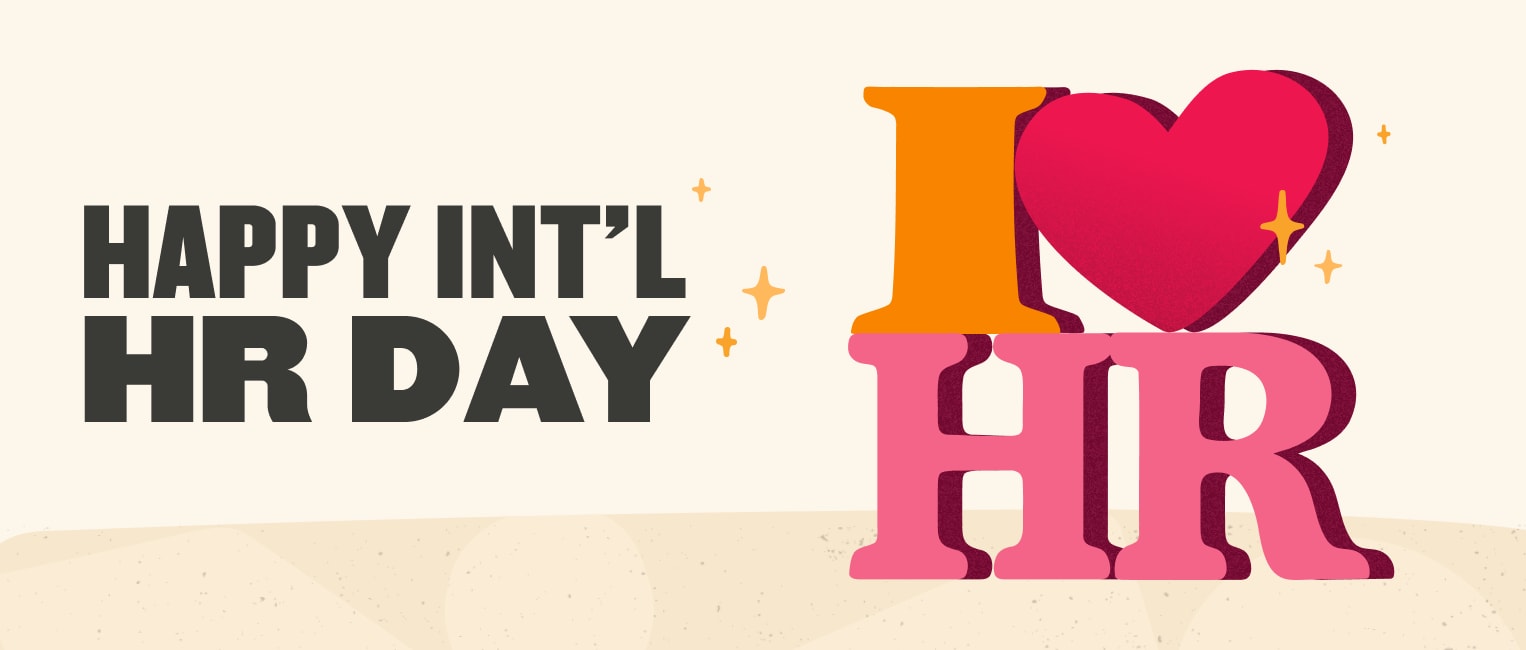Today’s HR professionals have a lot to contend with: Recruitment and workforce planning, emerging technologies, the need for new skills and continuous upskilling, remote work—and the communication issues that come from a dispersed workforce.
On top of this, HR professionals have a whole new generation (hello, Gen Z!) to cater to with wholly different expectations of employers, approaches to work, and workplace values.
But the biggest shift of all is how HR teams have transformed from backstage admins to fundamental business decision-makers with a seat at the table in just a few years.
As Stacey Harris, chief research officer and managing partner at Sapient Insights put it, “HR is the only function that can help companies build unique, lasting differentiators. We do not get innovation, continual growth, or deep customer relationships through HR cost-cutting. Instead, we get frustrated employees and more attrition … [W]hen HR is viewed as a strategic partner, talent, HR, and business outcomes all dramatically increase.”
And the numbers agree with Stacey, with a survey showing that 46 percent of respondents view HR as contributing strategic value in 2022, a noticeable rise from 38 percent in 2014.
This International HR Day, we’re introducing Influential HR as the way to up your HR game by championing a people-first approach.
Because being an Influential HR leader isn’t just about having a seat at the table and weighing in on action items anymore. Advancing your HR career now relies on mixing people data with the ability to strategically influence the action items that get put on your organization’s agenda.
It’s about picking the table up and moving it in a people-first direction that ensures your business thrives in the modern world of work—all while cementing respect for HR professionals as critical business leaders.
So let’s dive into how you can leverage Influential HR strategy this International HR Day, and how it can set you up for people-centric business success.
What is Influential HR?
People matter more than ever in today’s working world—and so does HR.
This presents a key moment for HR to reinvent itself, and that’s where Influential HR comes into play.
At its core, Influential HR sets the tone on how to put your team first. It’s next-level HR strategy that acts as a key strategic part of the business, enriching a people-first approach with data-driven insights.
Influential HR professionals transcend traditional HR functions. They actively contribute to the strategic direction of the organization, driving initiatives that enhance the employee experience, support organizational goals, and contribute to overall business success.
How Influential HR leaders do it
Influential HR leaders are at the forefront of transforming business dynamics. They do this by harnessing a mix of cutting-edge technology, valuable people data and analytics, and building resilience throughout organizations.
- Leveraging class-A people tech. Influential HR leaders can impact business metrics, growth engines, and productivity, and enrich the experience of every team member when they use high-level HCMs or HRISs.
- Utilizing people data and analytics. Garnering insights from people data and analytics can be key to impacting the C-suite and getting their buy-in for people-first business strategy and programming.
- Building resilience. Influential HR leaders can build and develop resilience by promoting a culture of continuous learning and adaptive change across all levels of the business, from high-level decision-makers and managers to individual team members and other contributors.
- Embracing emerging tech. They view emerging tech as an opportunity and not a threat or something that replaces people. Influential HR leaders integrate new tech into daily workflows to help people reach their goals.
How to become an Influential HR leader
Embracing Influential HR as your leadership strategy requires creative, agile, and tactical thinking. It’s about leveraging HR tech and data to build people-first business plans, get broad buy-in from stakeholders across the organization, and see your plans through to the end.
Let’s take a look at some of these principles in more detail.
Adopt a strategic mindset
Influential HR leaders understand the importance of formulating their people strategies around the usage of a unified and connected system that their people engage with every day.
This unified system can become the backbone of your people strategies, coupling engagement with people analytics. It can also give you actionable data that HR, people managers, the C-suite, and other team members can leverage.
Get buy-in for a unified people system
When you adopt a data-driven mindset and leverage tech alongside the information you gain from it, you’re in the perfect position to influence the decisions and actions your organization takes.
The use of this hard data gives you the authentic, data-backed evidence you need to showcase your HR initiatives’ effectiveness and alignment with your overall business strategies.
This helps convince other high-level stakeholders of the importance and cost-effectiveness of implementing a full-suite HCM solution.
Recommended For Further Reading
Achieve widespread usage of people tech
When quizzed about the adoption of HR tech, industry expert Josh Bersin said: “[I]f we can make this stuff easy to use, the consumption is going to go crazy, and it’s going to add huge amounts of value to organizations.”
The ultimate goal of Influential HR is to achieve this widespread use of people tech across your organization and effectively benefit from the value it brings.
Because when you champion a people-centric HR strategy and marry it with an easy-to-use HR platform with broad functionality that everyone across your organization can benefit from, it leads to widespread usage that influences each and every part of the business.
Celebrating HR leadership on International HR Day—and beyond
This International HR Day—and every day after—let’s celebrate all of the HR leaders out there who tirelessly champion people-first strategies and strategically shape the future of their organizations.
Let’s recognize ourselves as strategic partners and architects of real change in the business who influence all levels of the organization and who can push companies forward—creating a more harmonious, streamlined, successful, and culturally diverse modern workforce.


